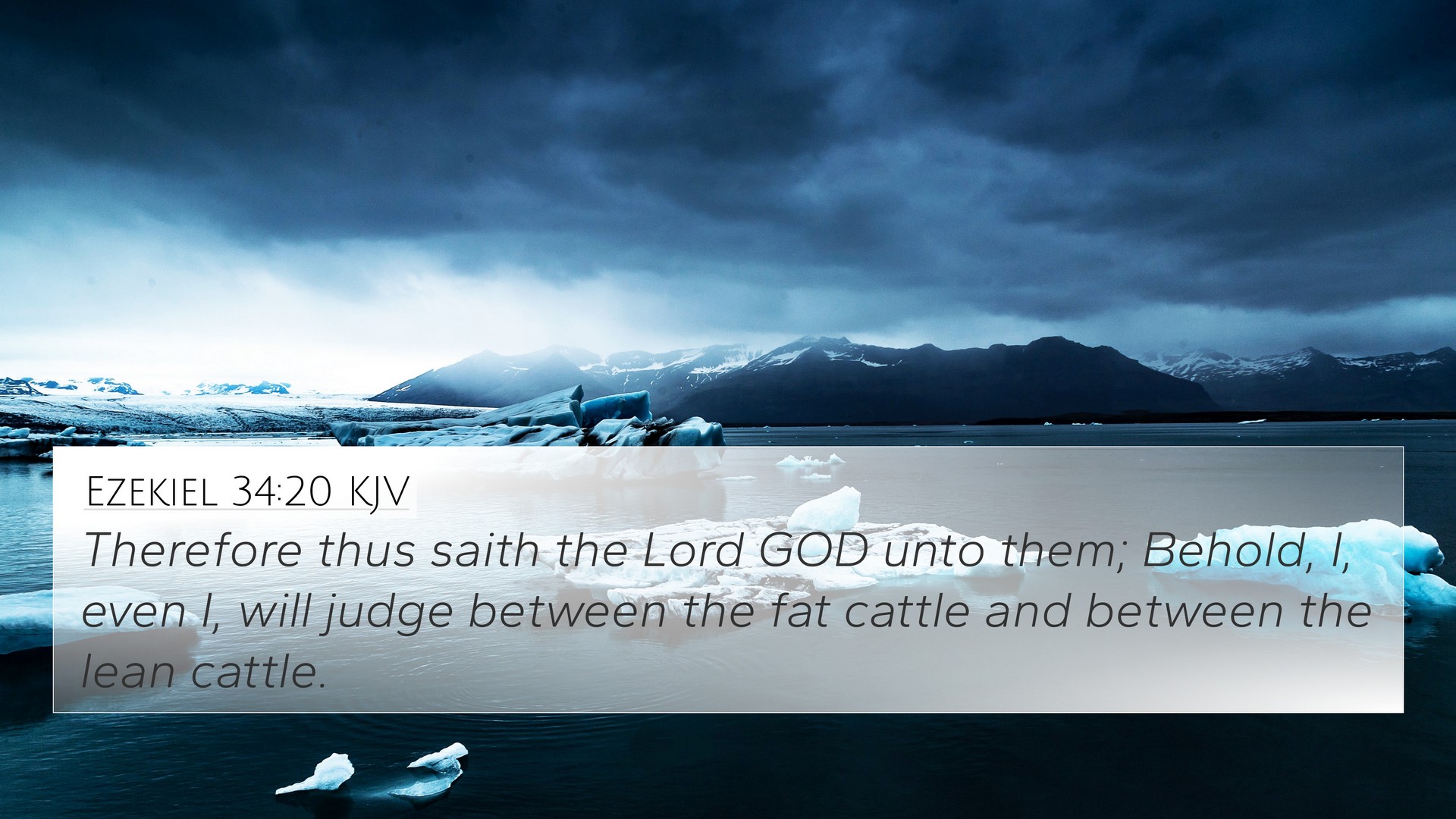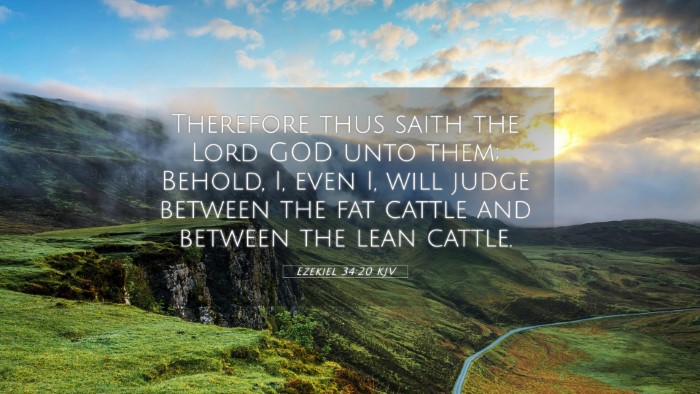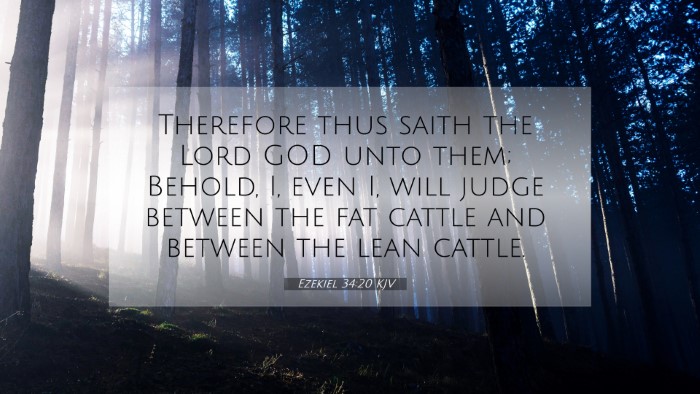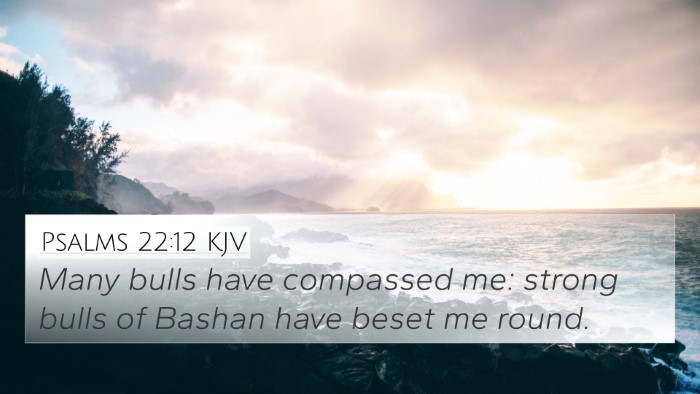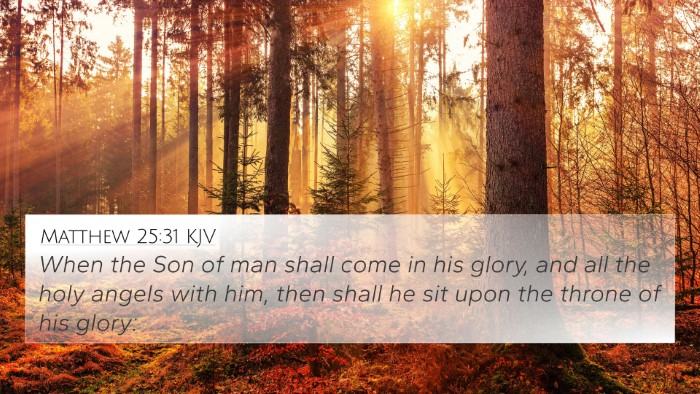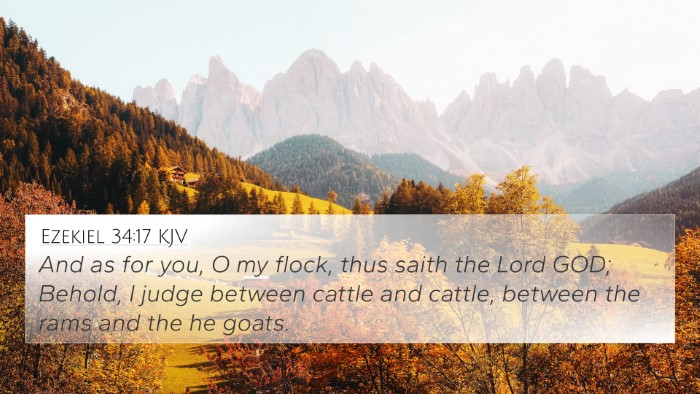Ezekiel 34:20 - Summary and Interpretation
Ezekiel 34:20 provides a profound statement concerning the role of leadership and accountability among God's people. The verse reads: "Therefore thus says the Lord God to them: Behold, I, myself will judge between the fat and the lean sheep."
Contextual Understanding
This verse is nestled in a chapter where God, through the prophet Ezekiel, criticizes the leaders of Israel for their neglect and malicious treatment of the flock, symbolizing the people of Israel. God asserts His role as both a caretaker and a judge who will hold leaders accountable for their actions towards the people they were meant to shepherd.
Key Themes
- Divine Judgment: The idea that God Himself will intercede in judgments signifies His ultimate authority and divine justice.
- Responsibility of Leaders: This verse highlights the weight of responsibility that leaders carry in guiding their people.
- Distinction Among the Flock: The imagery of "fat" and "lean" sheep illustrates the disparities in treatment and care that God will address.
Insights from Commentaries
Matthew Henry's Commentary: Henry emphasizes God's personal involvement in the welfare of His people, suggesting that divine oversight ensures every injustice will be addressed. He highlights that God will differentiate between those who have been favored and those who have been marginalized.
Albert Barnes' Notes: Barnes points out that the "fat" sheep represent the leaders and the oppressed among the people. He interprets this verse as a divine promise that God will intervene and rectify the wrongs done by the shepherds of Israel, calling for accountability.
Adam Clarke's Commentary: Clarke elaborates on the metaphor of sheep, explaining that the divided sheep symbolize different conditions of the people based on the leadership. God promises to bring justice, thus ensuring that the weak will not be neglected while the strong are favored.
Bible Verse Cross-References
This verse connects with several other scriptures that address themes of judgment, leadership, and God’s care for His people:
- Jeremiah 23:1-2: "Woe to the shepherds who destroy and scatter the sheep of My pasture!" This speaks to the responsibility of leaders.
- Matthew 25:32-33: "All the nations will be gathered before Him, and He will separate them one from another." This is a further biblical instance of divine judgment.
- Ezekiel 34:16: "I will seek the lost, and I will bring back the strayed." This reinforces God’s commitment to His people.
- 1 Peter 5:2-3: "Shepherd the flock of God that is among you, exercising oversight." This emphasizes the role of leaders in the church.
- Isaiah 40:11: "He will tend His flock like a shepherd." This assures us of God’s nurturing nature.
- John 10:14: "I am the good shepherd. I know my own and my own know me." Jesus identifies Himself as the shepherd, fulfilling this role perfectly.
- Ezekiel 34:22: "I will rescue My flock; they shall no longer be a prey." This connects back to God’s commitment to justice and care.
Thematic Connections Between Bible Verses
There are numerous thematic connections that can provide further insights into the relational dynamics within the scripture:
- Leadership and Accountability: The connection between Ezekiel 34 and New Testament teachings highlights the expectations for Christian leaders.
- God's Justice: The continuous theme of God's commitment to seeking justice resonates throughout the prophets and the Gospels.
- Divine Care: Both the Old and New Testaments portray God as a loving shepherd, underscoring His relational nature with humanity.
Tools for Bible Cross-Referencing
For a deeper understanding of connections between Bible verses, several tools and methods can facilitate effective study:
- Bible Concordance
- Bible Cross-Reference Guide
- Cross-Reference Bible Study Techniques
- Bible Chain References
- Comprehensive Bible Cross-Reference Materials
Conclusion
Ezekiel 34:20 offers profound insights into God's role as a judge and protector, emphasizing accountability among leaders and His unwavering commitment to justice and care for His people. Through examining related verses and themes, we can gain a richer understanding of the biblical narrative surrounding God's shepherd-like nature and the responsibilities of those in leadership.
